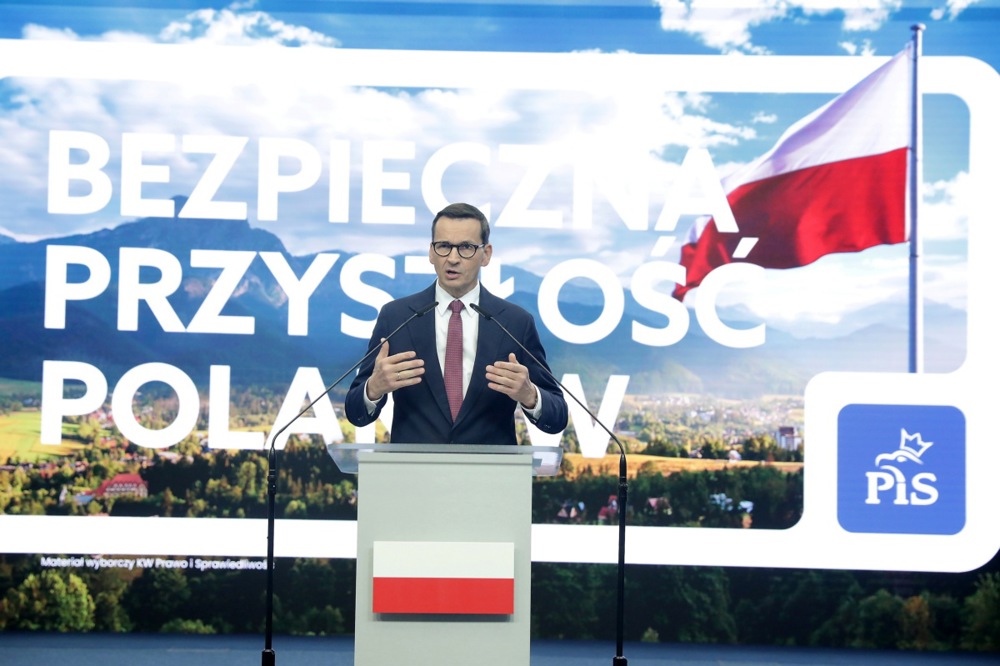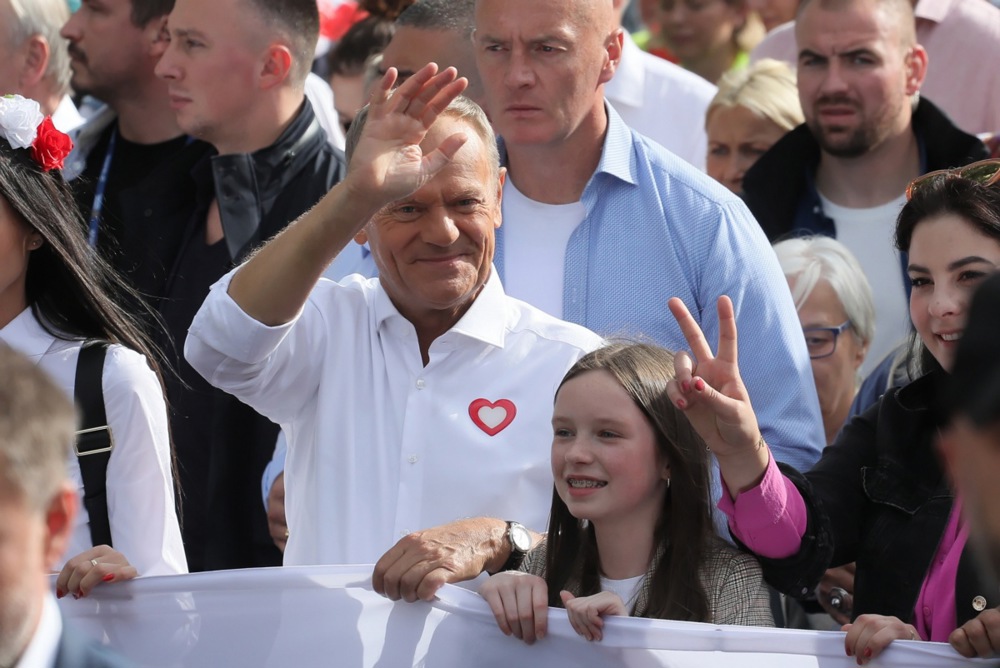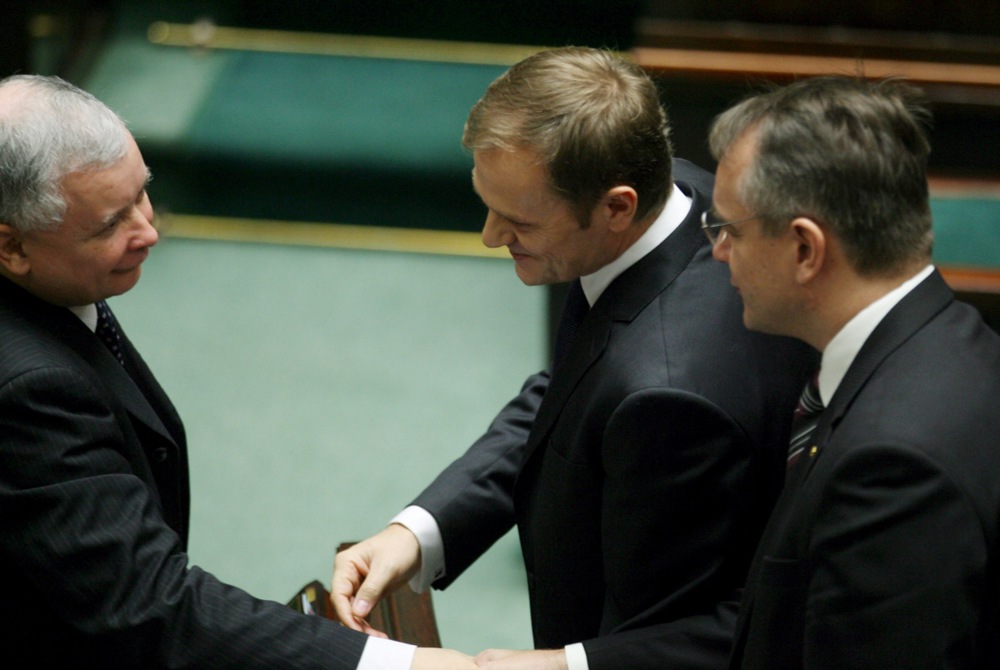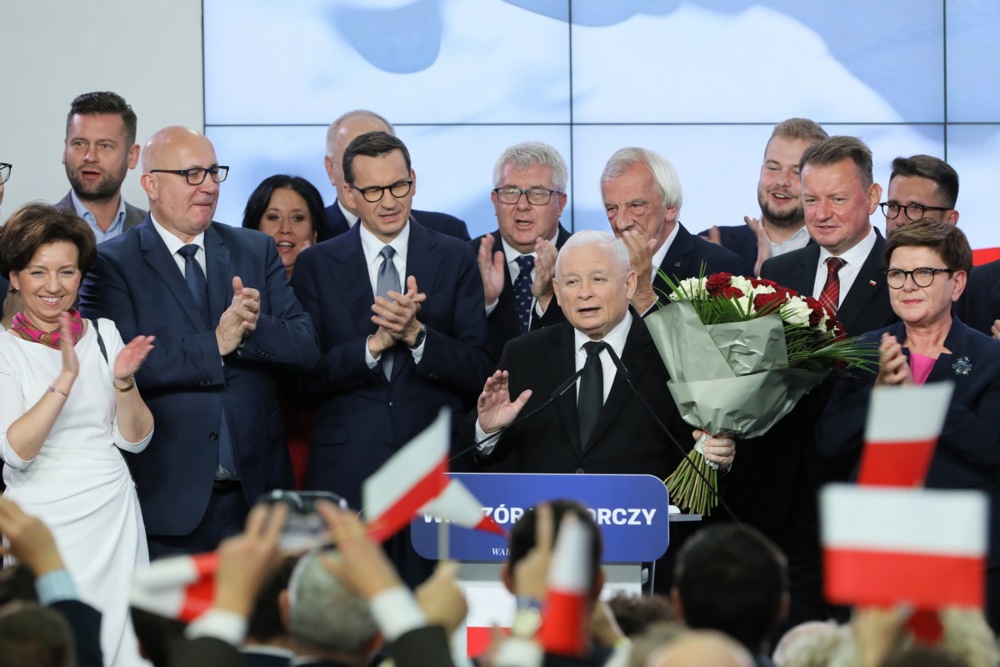Tension is emerging between the three parties set to make up Poland’s new coalition: Civic Coalition (KO), the Third Way alliance and the Left, over the direction and leadership of the new government.
On October 17, Tusk celebrated confirmation that the three groups that pledged to form the ruling coalition will have 248 seats in the 460 seat Lower House. They will also have 66 out of 100 seats in the second chamber, the Senate.
He declared that the opposition is “ready to govern” and called on Duda to act as quickly as possible on initiating the first sitting of parliament and nominating the new prime minister.
Polish President Andrzej Duda has 30 days from the day of the election, October 15, to call the first sitting and to identify a candidate for prime minister.
He has hinted that he would follow the custom of first giving the party with the largest number of seats, which is the present ruling party PIS, the opportunity to try to form a government.
Tusk is putting pressure on Duda to nominate him instead.
In a video released by his party, he said: “I am making a passionate appeal to the president. People are waiting for the first decisions that will be a consequence of these elections, so I would ask the president to make energetic and quick decisions.
“Winning democratic parties are in constant contact and are ready to take over responsibility for government in the country at any time.”
Of the three entities that will form the new government, the KO is dominated by Tusk’s Civic Platform but also contains the Greens, a small Liberal party. Third Way alliance is made up of the Centrist Polish People’s Party (PSL) and the more Liberal Poland 2050. The Left are a grouping of post-Communists from the old Left Alliance (SLD) and the new more Left-wing Together (Razem) party.
The three avoided targeting each other during the election campaigns but tensions are now emerging with regard to the leadership of the government and the direction it is to take.
Some MPs in the Third Way party are questioning whether Tusk should be the prime minister in the new government.
Władysław Teofil Bartoszewski from the PSL told reporters: “According to polls even 20 per cent of KO voters don’t trust him and in general he has a large number of voters distrusting him.”
He added that he felt the PSL leader Władysław Kosiniak-Kamysz would be a better candidate.
Third Way is more likely to press for its candidate becoming the Speaker of the Lower House, a powerful job as the Speaker sets the legislative agenda of that chamber.
The KO will not give up that job lightly and unnamed sources have said that they would prefer a candidate from the largest element of the new ruling coalition to be installed in that role.
Alongside such concerns are substantive issues relating to the economy and social considerations such as abortion and LGBT rights.
Kosiniak-Kamysz told reporters his party would not agree to including any reference to “matters of conscience” such as abortion and LGBT rights in the coalition agreement.
Former agriculture minister Marek Sawicki said: “If the KO wishes to change the law on abortion it will have to seek a majority in parliament for that, but this will not be government policy.”
Since the PiS, the Right-wing Confederation and the 32 PSL MPs in the new ruling coalition are more than likely to oppose such moves, the promised liberalisation of Polish abortion law looks a non-starter.
Another pressing issue that may also cause controversy is the issue of pay rises for public-sector workers. On October 17, Tusk said he wanted to rush through such measures so they could be introduced early in the New Year.
Third Way are more cautious. PSL MP Adam Jarubas told Polish public radio: “We have to see what the state of the public finances is before we can agree to any major financial commitments.” He said that also applied to possible tax cuts.
Pay rises of 20 per cent for all public-sector workers and 30 per cent for teachers were a major feature of the KO’s election campaign promises, as was the doubling of the income tax threshold and the abolition of capital gains tax.
PiS continues to insist that, as the party that won most votes and seats, it should have the right to attempt forming a government. It acknowledged that the time it has for building a majority is no more than a month.
The problem seems to be that no other party wants to talk to PiS, so if its candidate for Speaker of the Lower House fails, Duda may feel obliged to give the new parliamentary majority the nomination.
That will in turn fire the starting gun for recriminations on Poland’s Right over its election defeat. Such talk has already begun among commentators and “unattributable sources”.
The ruling party’s share of the vote was down by 8 per cent compared with 2019 and it won 41 fewer seats in the Lower House and 12 fewer in the Senate. The PiS election campaign was criticised for being too negative and overly focused on “preaching to the converted” rather than on undecided voters.
Both PiS and the emerging ruling majority will have to adapt quickly. Poles are set to vote in local government elections in the spring 0f 2024.
Following that are the European Parliamentary elections in June and the Polish presidential election in the spring of 2025.





